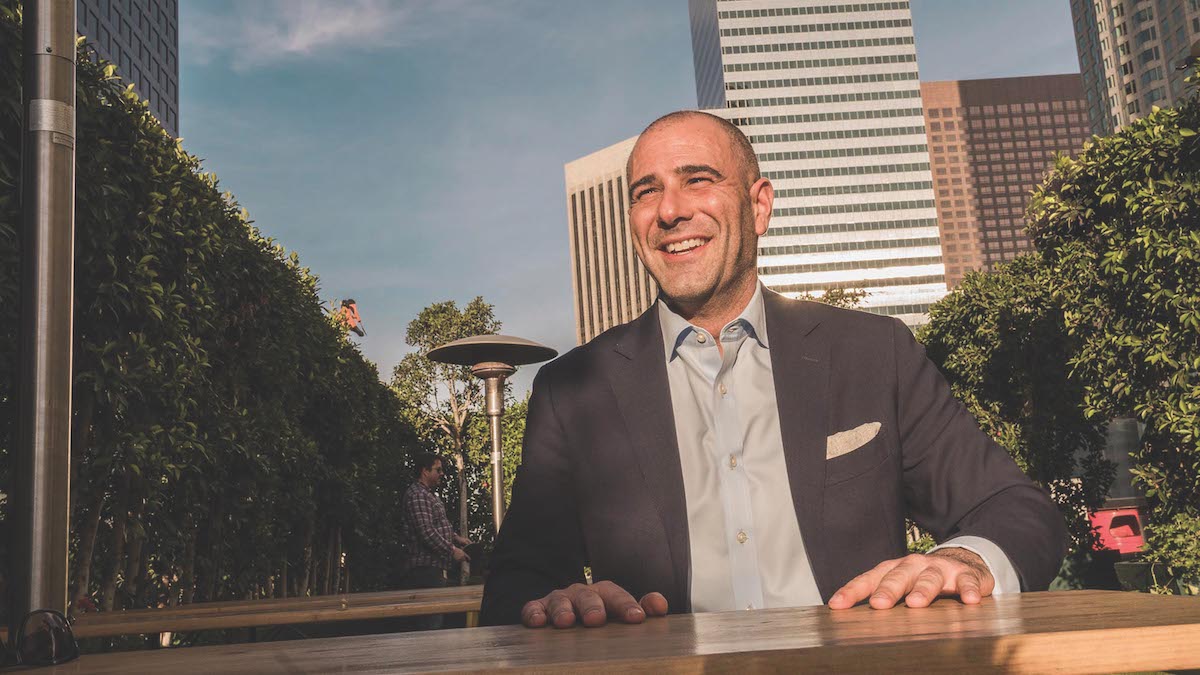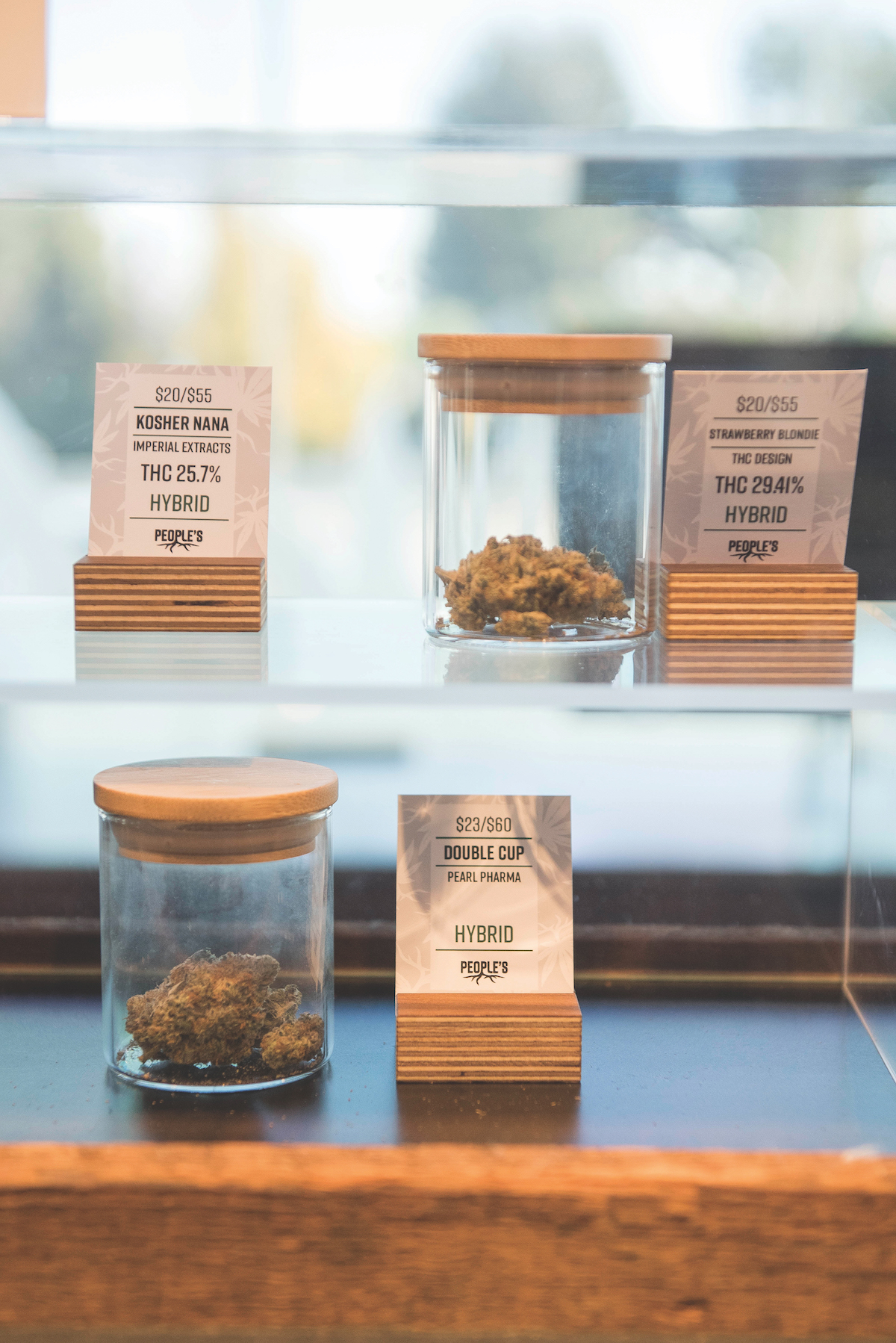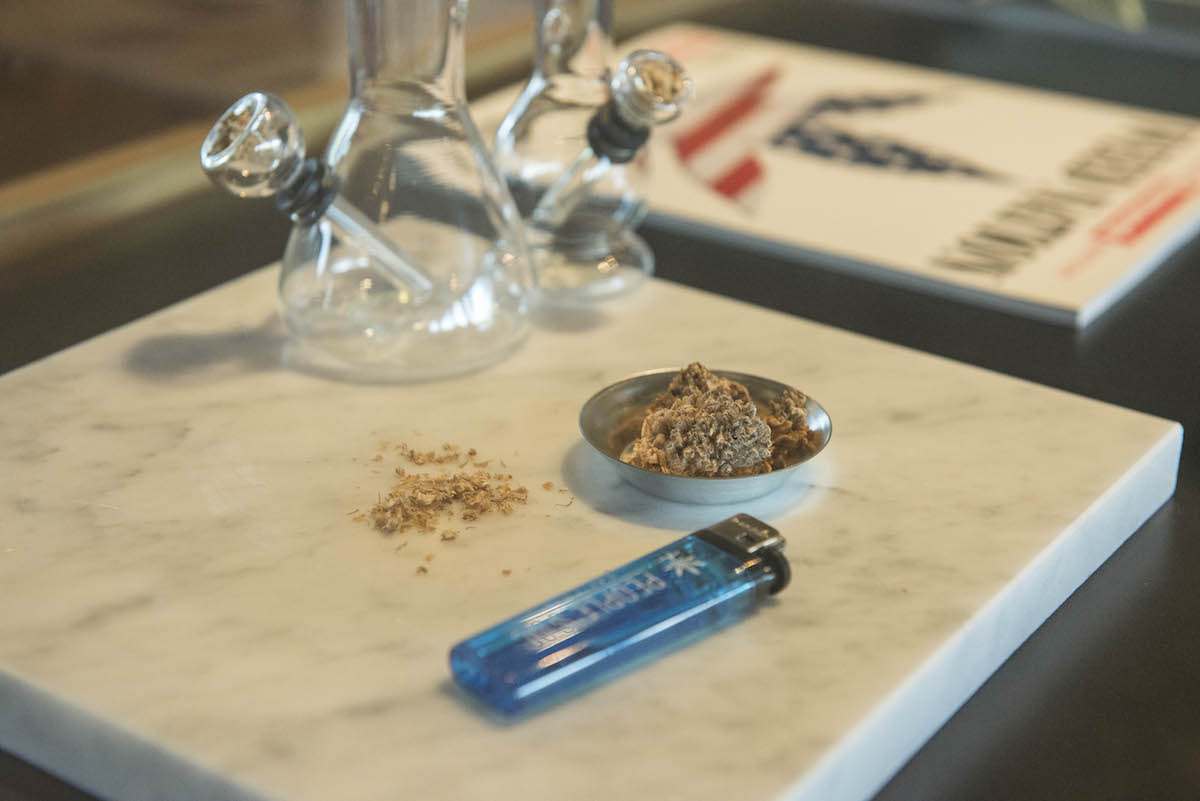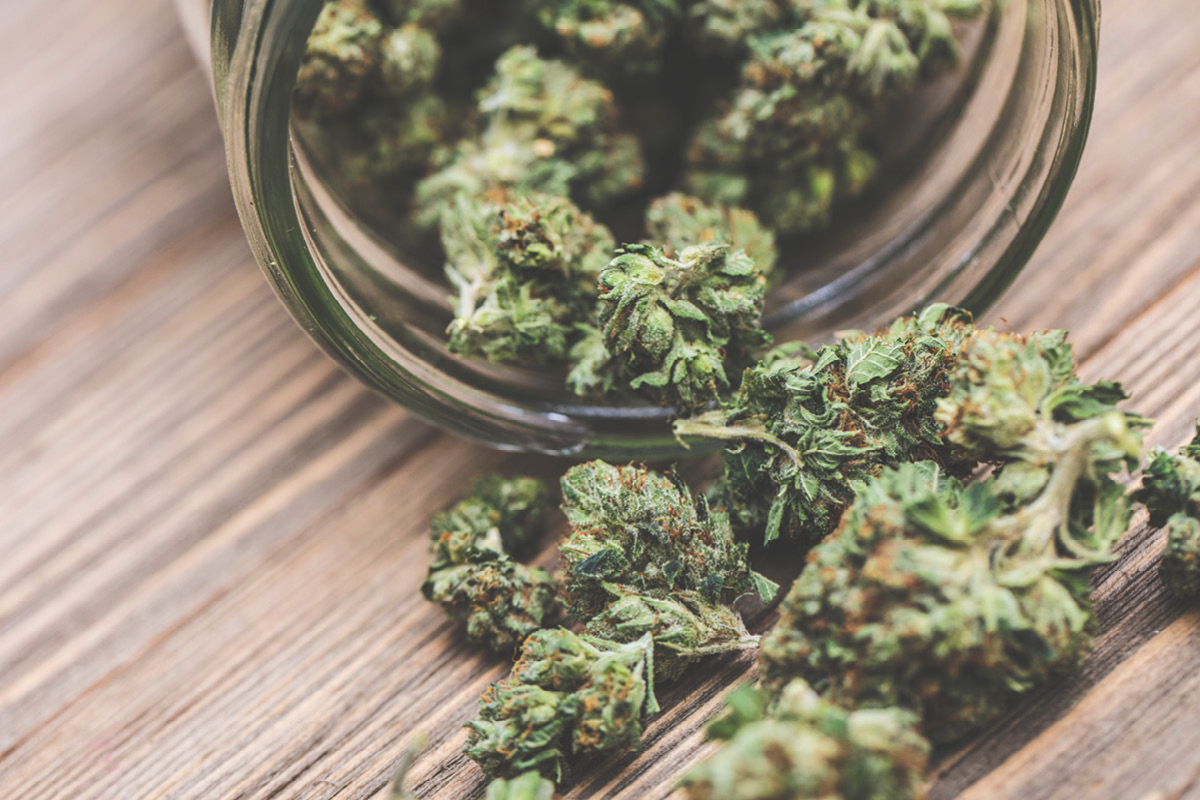Sturges Karban grins, his teeth as pin-point perfect as you’d expect from someone who’s worked in Hollywood, rubbing shoulders with the Clooneys, Eastwoods and, sadly, Weinsteins, for years.
“Effectively, I am the CEO of a criminal enterprise,” he says. “That’s America for you, and it’s not going to stop me. Or anyone else.” Karban, 49, a former investment banker who’s also worked in music publishing for motion pictures, is now the CEO of MJIC, one of more than 30,000 companies that are aiming to cash in on the booming cannabis industry in America and, he predicts, the budding one that’s set to take off in the rest of the world.
Strictly speaking, under US federal law, what he’s doing – by arranging for the distribution and sale of what is a still Schedule 1 drug, like heroin and cocaine (MJIC is investing in various pot businesses, including dispensaries, but its main focus is on distribution and compliance) – is illegal. But then, gambling is against federal law in America, too, and no-one in Las Vegas seems to mind.
Green industries
While US Attorney General Jeff Sessions continues to rail against the evil weed, the rest of the country is leading the world in changing attitudes to the drug, with eight states now having legalised it for recreational use – effectively making it as freely available as beer – with California, the world’s sixth-largest economy, joining the party on 1 January this year. (Medicinal use and supply of cannabis is already legal in 29 US states, covering more than 60% of the country’s population.)

Los Angeles is set to become the largest cannabis market in the world, with the state government expecting to reap more than US$1 billion in revenue from sales of the drug, and Karban predicts the national market will be worth as much as US$50 billion by 2026.
These are the kinds of numbers that have investors rushing out of the woodwork, clamouring to get their hands on the pot of gold, and shares in green industries going berserk (listed companies in the US added nearly US$2 billion in value in the 24 hours after California started to legally sell recreational marijuana on 1 January, encouraged by the long queues outside dispensaries, according to Forbes.com.)
Karban compares the current rush to the tech boom of the late 90s, and believes it’s just as hard now to know which start-ups will be the winners, but it’s potentially just as rewarding.
“Remember when the internet was this wide-open green space that you could do anything with? That’s the stage we’re at right now, where it’s hard to place a bet on anything, because it’s so fragmented, and so early on,” he says, sounding far more excited than daunted.
“It’s like 1998; people made huge plays and got it wrong, and it’s going to be the same here, because it’s hard to know what the category killers are. You can buy anything now – from candies to drinks, to breath-freshening strips, all with cannabis – who knows, maybe it will be infused butter that is a runaway success, because it’s easy to activate and you can put
it in anything.

You can buy anything now – from candies to drinks, to breath-freshening strips, all with cannabis – but who knows, maybe it will be infused butter that is a runaway success.
“But what makes this industry unique is the regulation, so a lot of the players you would typically see backing a big start-up play like this aren’t here. Silicon Valley isn’t here for this. Wall Street isn’t here yet, so the industry is being capitalised and built upon US$25,000 to US$50,000 cheques, and up to a couple of million for the bigger investors.”
APAC’s input
And that sounds, and smells, like an opportunity to a lot of people, including Australian Gaelan Bloomfield, who works for an investment fund called Greenfield Management Partners, set up specifically to invest money from Asia and Australia into the US cannabis market.
“Our fund has put close to US$8 million into the US cannabis market, specifically the California market, and from an investor standpoint, in my opinion – and I’ve done
a fair amount of due diligence on this – there is no better investable market in the world right now than cannabis,” Bloomfield insists.
California is so attractive, he believes, because it already has a cannabis culture,
and a huge existing population of pot smokers, most of whom buy their happy herb on the multibillion-dollar black market.
“And now the black market is becoming a transparent market overnight. It’s crazy! It’s like you’re looking at the end of Prohibition in the 30s – would you have been buying Jack Daniel’s stock? I know I would,” he chuckles.
“In some states, parents – the baby boomers – are now more likely to be smoking cannabis than their children. From an investment standpoint that’s an excellent market; you’ve got
a latent population of soccer mums who are heading towards retirement age, who used to
do it and stopped because they were having kids. Now they’re older and cashed up, they’re re-engaging with it, and looking at the medicinal benefits as well.”
Next stop, the world
While California is where the change, and investment, is happening fastest right now, Karban believes he will soon be playing in a global marketplace. “I’m absolutely certain that we’ll be shipping weed across the US very soon, as I think going recreational across the country is inevitable. The narrative used to justify prohibition for the past 50 years doesn’t hold, and there’s way too much consensus around the medicinal benefits of cannabis,” he explains.

“Plus, they’ve let the genie out of the bottle with so many states making their own laws, and California is the bellwether. But I’m building this company so that we can ship it to Europe, South America, Israel… I think it’s a global opportunity.
“The Global Commission on Drug Policy has Richard Branson, Kofi Annan and others talking about ending the war on drugs. And if you look at the world map, there’s a lot of deregulation of cannabis.
“Global? No question. The timing, however, is literally the $64 billion question.”
Ask Karban when he thinks Australia will jump on board the change train, however, and those shining white teeth flash again as he has a good laugh at the idea.
“It’s amazing, last time I was in Australia I saw maybe two vaporisers the whole time I was there, and here they’re on the streets everywhere. Even telling Australians that these products exist, that you could buy these things in the US, they just didn’t believe you.”
Growth market
Travis Turner is another investor who’s put his money where his mouth is, having bought and set up a dispensary in the LA suburb of Paramount that he’s been paying rent on for
a year, but is unable to open until the legal changes come into effect.
He’s also spent more than US$100,000 on licensing and fees, but is certain it will all
be worthwhile, as he expects to turn over more than US$1 million in cannabis products in his first year.
Turner, a former war correspondent and photojournalist, believes growth in the pot market will be exponential, as people who’ve heard of the drug’s health benefits but were
put off by its stigma realise that it’s now as legal as taking paracetamol.
“I’ve got a couple of delivery services that will bring cannabis to your door in Riverside County, but I’m trying to be vertically integrated,” he says, standing in a shop that smells like a Nimbin resident.
“I have a cultivation site, a large-scale manufacturing facility that makes vaporiser pens and that kind of thing, and a distribution company. This dispensary is to funnel what I’m already doing into a kind of showroom where people can see, and buy, what we produce.
“This business will be profitable, but I think manufacturing will surpass everything – making oils, candies and gummy bears, ice-cream, vaporisers… you name it.”







